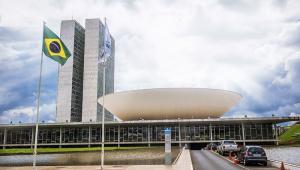The ‘extended fund facility’ will be the 13th such rescue since the late 1980s, and finance minister Abdul Hafeez Shaikh told journalists he hoped it would be Pakistan’s last, Reuters reported.
Pakistani growth will slow to 2.9% this fiscal year from 5.2% in 2018, according to IMF forecasts, while the country’s central bank has cut its growth estimate to between 3.5%-4%.
The Washington-based fund said the 39-month EFF is subject to Pakistan continuing with its economic reform agenda and must still be approved by the IMF’s board.
“The programme aims to support the authorities’ strategy for stronger and more balanced growth by reducing domestic and external imbalances, improving the business environment, strengthening institutions, increasing transparency, and protecting social spending,” said Ernesto Ramirez Rigo, who led a recent IMF delegation to Islamabad.
“Pakistan is facing a challenging economic environment, with lacklustre growth, elevated inflation, high indebtedness, and a weak external position.
“This reflects the legacy of uneven and procyclical economic policies in recent years aiming to boost growth, but at the expense of rising vulnerabilities and lingering structural and institutional weaknesses.”
Imran Khan became prime minister last year committed to avoiding another bailout by seeking billions of dollars from China, Saudi Arabia and the United Arab Emirates.
However, his government was forced to turn to the IMF after inflation rose above 8%, the Pakistani rupee lost about a third of its value, and foreign exchange reserves dwindled.
Ramirez Rigo said the EFF aims to support the Pakistani government’s “ambitious” macroeconomic and structural reform agenda over the next three years.
This includes improving public finances and reducing public debt, and the forthcoming budget will now aim for a primary deficit of 0.6% of GDP.
Tax and administrative reforms will aim to strengthen revenue mobilisation, and a plan for cost-recovery in the energy sectors and state-owned enterprises will also reduce the deficit.
“These efforts will create fiscal space for a substantial increase in social spending to strengthen social protection as well as in infrastructure and human capital development,” Ramirez Rigo added.
During talks with the IMF, Khan reshuffled his economic team by naming Shaikh as finance minister and appointing the IMF economist Reza Baqir as governor of the central bank.














